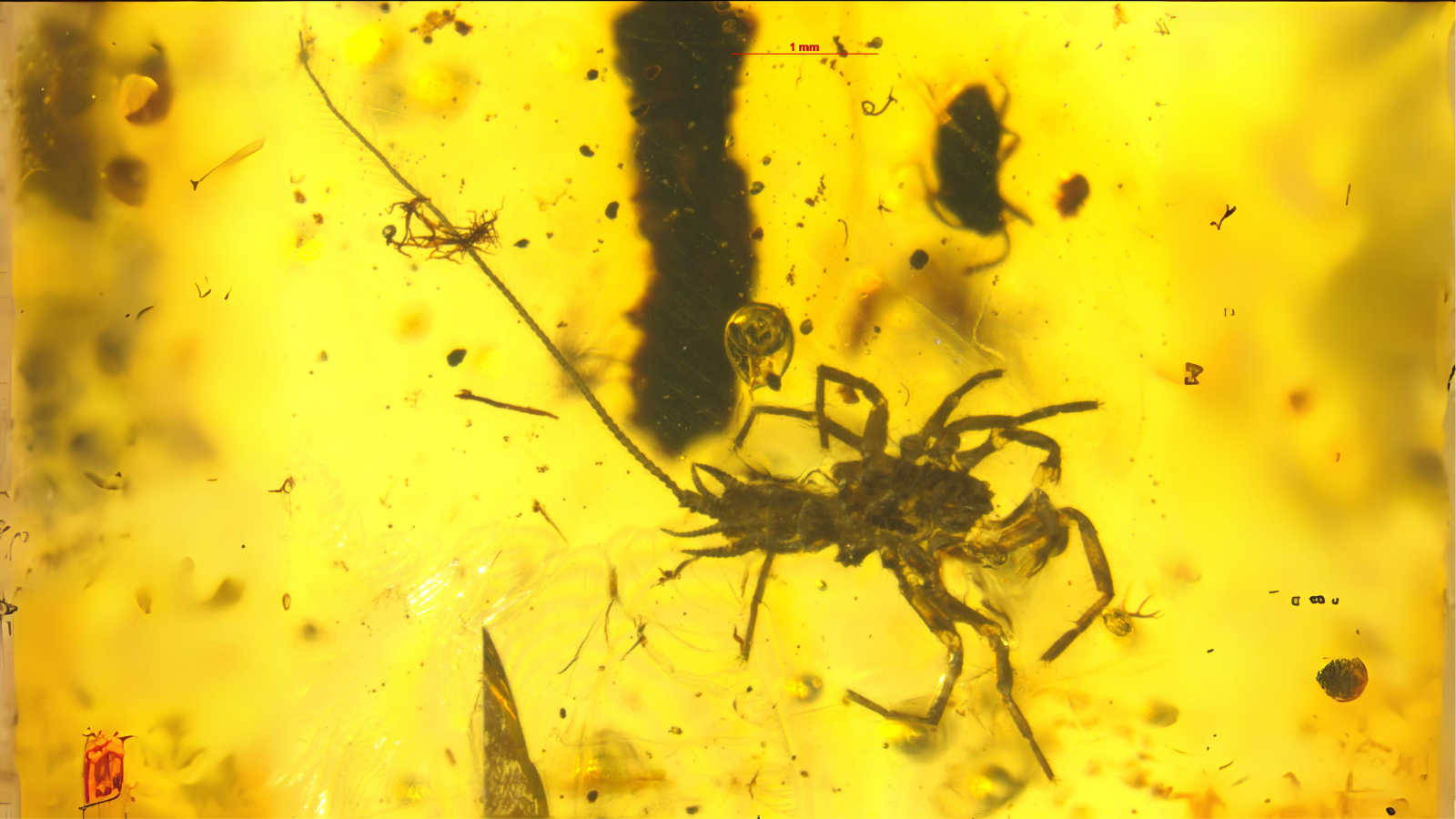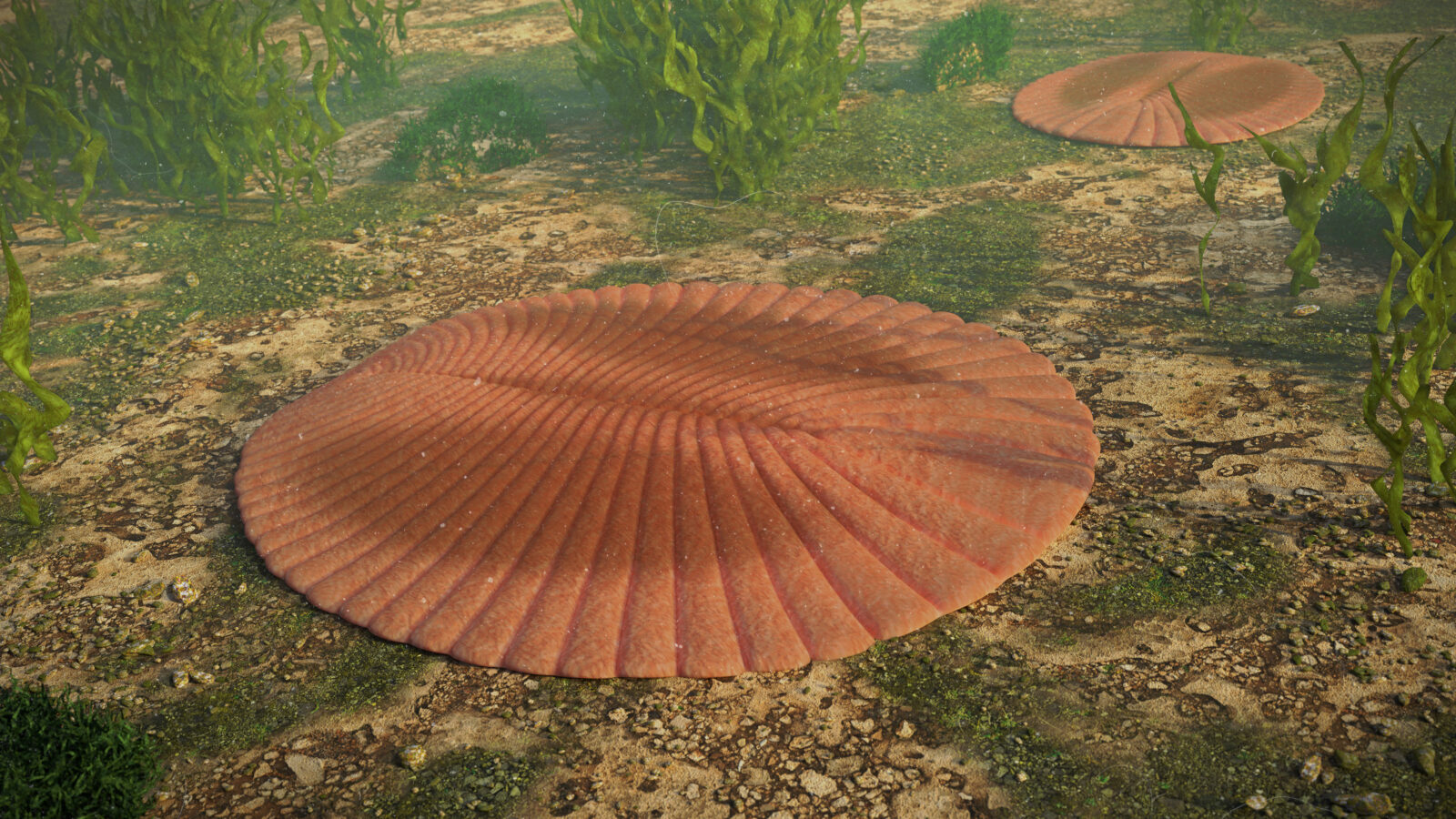


How the Caterpillar Got Its Legs…Or Not

Günter Bechly on Why Seventy Years of Textbook Wisdom Was Wrong

A Scientist’s Path from Atheism to Christian Theism
Today’s ID the Future brings listeners distinguished German paleontologist Günter Bechly’s fascinating story of how science and philosophy moved him from atheism to theism, with host Andrew McDiarmid providing a beautiful reading of the essay where Bechly relates his journey, “A Long Surrender: A Scientist’s Arduous Path from Hard Atheism to Faith.” As he explains, he did not surrender his atheism quickly or easily, but only after long study and much resistance. The final two-and-half minutes of the reading recount Bechly’s journey after he became a non-specific theist. There are many stories of the evidence for intelligent design bringing individuals to a general belief in a cosmic designer. In Bechly’s case, and as he explains in final part of his Read More ›

Günter Bechly: Species Pairs Wreck Darwinism
On this ID the Future, distinguished German paleontologist Günter Bechly continues unpacking his new argument against modern evolutionary theory. According to Bechly, contemporary species pairs diverge hardly at all over millions of years, even when isolated from each other, and yet we’re supposed to believe that the evolutionary process built dramatically distinct body plans in similar time frames at various other times in the history of life. Why believe that? He suggests this pattern of relative stasis among species pairs strikes a significant and damaging blow to Darwinian theory. In this Part 2 episode, Bechly and host Casey Luskin discuss mice/rat pairs, cattle and bison, horses and donkeys, Asian and African elephants, the Asian black bear and the South American Read More ›

Species Pairs: A New Challenge to Evolutionary Theory
On today’s ID the future, German paleoentomologist Günter Bechly and host Casey Luskin unpack a recent article of Bechly’s at Evolution News, “Species Pairs: A New Challenge to Darwinists.” There Bechly describes a challenge to evolutionary theory that thus far has been given little attention, namely “the morphological similarity of modern species pairs.” He says this “poses a severe problem for Darwinian theory “because it implies that the macroevolutionary processes that allegedly were at work and common during all periods of Earth history and in all groups of organisms, apparently were totally absent in the origins of all of the millions of living species.” Or as he puts it in a follow-up article on the same topic, “Among the 350,000 Read More ›

Debunked Transitional Fossils Just the Tip of the Iceberg
On today’s ID the Future Casey Luskin hosts distinguished German paleontologist Günter Bechly to discuss Bechly’s essay in the recent Harvest House anthology, The Comprehensive Guide to Science and Faith: Exploring the Ultimate Questions About Life and the Cosmos. Darwinian evolution predicts a gradually branching tree of living forms, with one form shading into another over long periods of evolution, with each transitional step almost too modest to notice. Does the fossil record suggest such a pattern? Quite the opposite, Bechly says. Instead the pattern of the fossil record is consistently one of sudden appearance, and evolutionists have yet to successfully construct a single robustly populated series of gradually transitioning fossils that move chronologically from one form to a distinctly different Read More ›

An ID Debate, Pt. 2: Joshua Swamidass and Günter Bechly
Today’s ID the Future concludes a debate over the merits of intelligent design and modern evolutionary theory. Günter Bechly is a distinguished German paleoentomologist who was an atheist and Darwinist but became convinced of theism after he finally decided to read some of the books written by leading ID proponents and found their arguments far stronger than he had been led to believe from second-hand accounts. S. Joshua Swamidass is a computational biologist at Washington University in Saint Louis who says ID may or may not be true in some part of what it affirms, but while he believes in a Creator, he doesn’t find the central arguments of intelligent design proponents logical and cogent. He also is more sanguine Read More ›

An ID Debate: Joshua Swamidass and Günter Bechly, Pt. 1
Today’s ID the Future features a debate over the merits of intelligent design. Günter Bechly is a German paleoentomologist heard many times on ID the Future, who says the science convinced him that intelligent design is true. S. Joshua Swamidass is a computational biologist at Washington University in Saint Louis who says ID may or may not be true in some part of what it affirms, but for him, the science doesn’t lead you to it. They met in a dialogue hosted by Justin Brierley on his Unbelievable? podcast, reposted here with Brierley’s permission. This is the first half of the conversation. The second half is coming to IDTF soon.

Botany Journal Revisits Darwin’s “Abominable Mystery”
On today’s ID the Future, German paleontologist Günter Bechly unpacks what Charles Darwin referred to as an “abominable mystery,” the sudden appearance in the fossil record of a certain group of flowering plants. It was a mystery to Darwin because according to his theory, there should have been a long succession of precursors gradually evolving toward the flowering plants of the Cretaceous. Bechly and host Eric Anderson focus their conversation around a recent paper by Richard Buggs in the American Journal of Botany showing that the problem for evolutionary theory has actually grown more acute since Darwin’s time. What about a recent article claiming to have found evidence of flowering plants in the Jurassic? Bechly says that the “evidence” amounts Read More ›